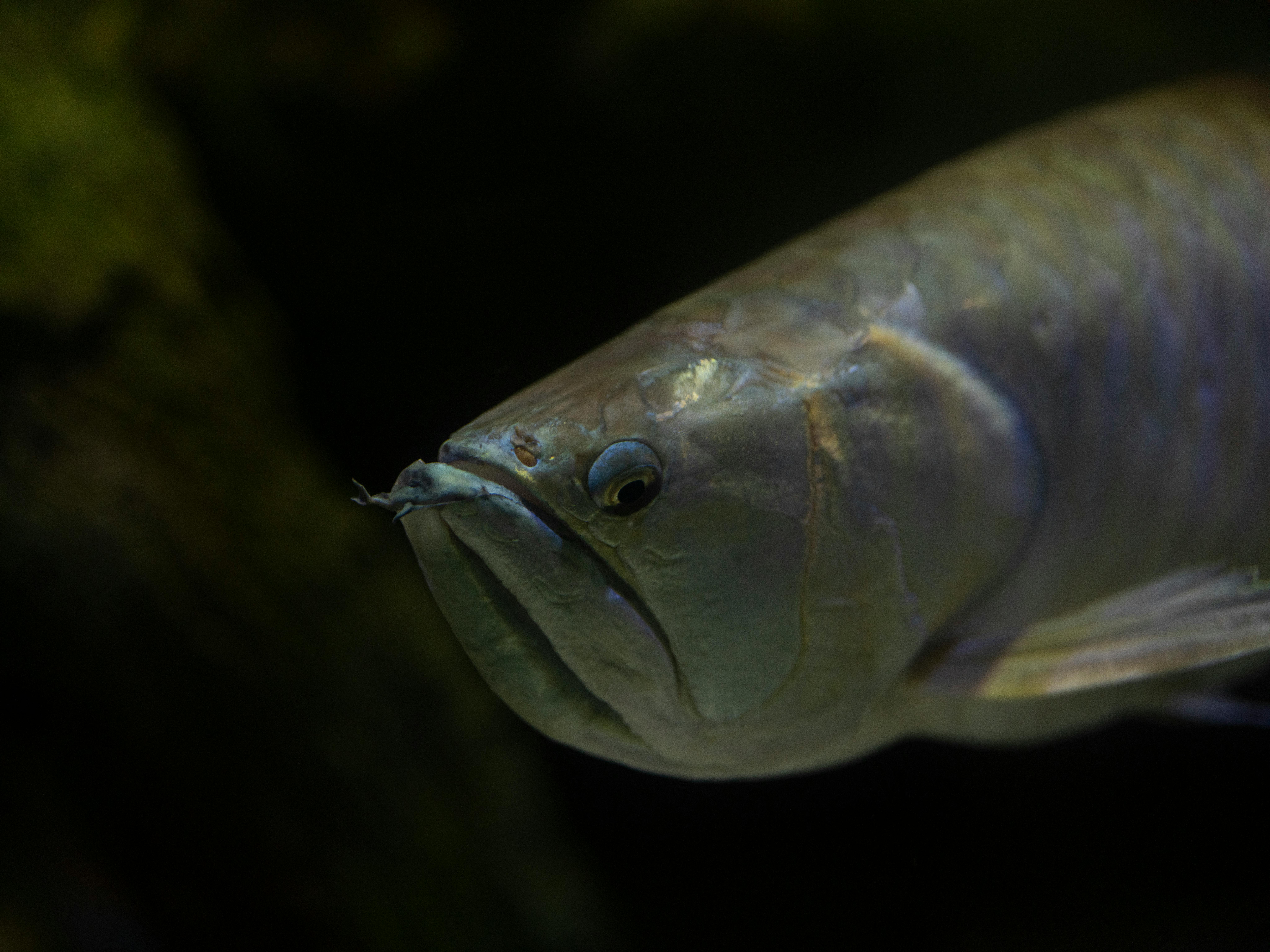Apply Now
Effective Ways to Maintain Detritus Worms in Your Aquarium
Detritus worms play a crucial role in maintaining a healthy aquarium ecosystem. These resilient invertebrates thrive on decaying organic matter, contributing to the breakdown of detritus and enhancing the overall health of your tank. They also provide a natural food source for fish, making them beneficial companions in any aquatic environment. Ensuring the stability of these populations not only supports your aquarium's ecosystem but also promotes biodiversity, leading to improved fish health and an ecological balance.
In this article, we will delve into various effective methods for maintaining detritus worms in your aquarium. From understanding their habitats to optimal feeding habits and tank maintenance strategies, we will cover all essential aspects to keep your aquarium critters flourishing. Here’s what you can expect to learn:
- The significance of detritus worms in tank health
- Best practices for worm introduction and habitat improvement
- Feeding habits and care tips for sustainable aquarium life
By integrating these practices, you’ll be able to create a thriving environment that supports both detritus worms and the fish that depend on them. Let's dive into the essential methods for maintaining these aquatic wonders.
Understanding the Importance of Detritus Worms in Aquariums
Understanding why detritus worms are essential to your aquarium starts with their role in improving substrate health. These organisms break down organic waste, enhancing microbial balance and supporting biofilter bacteria health. Healthy substrate not only contributes to a cleaner environment but also supports the overall ecology of your fish tank.
In freshwater tanks, detritus worms help in sediment processes, assisting in natural filtration while controlling detritus accumulation. They are part of the aquatic food web, providing a non-pollutant food source for more significant aquatic species—including your ornamental fish. Furthermore, their activities contribute to nutrient cycling, helping to maintain a balanced ecosystem.
By nurturing detritus worms, aquarists can improve the functionality of their tanks, as these creatures facilitate waste management and assist in maintaining water quality. Building on this foundation, let's discuss how to set up optimal worm habitats for their preservation.
Creating Optimal Worm Habitats for Aquarium Health
Creating optimal habitats for detritus worms involves understanding their biological needs and the conditions that promote their survival. Generally, worms thrive in soft, well-aerated substrates that contain organic materials.
**Choosing the Right Substrate:**
Opt for substrates that can serve as a food source, such as sand or fine gravel. Organic substrates are ideal as they promote the growth of beneficial microorganisms that detritus worms feed on.
**Tank Setup & Maintenance:**
Ensure your tank is set up with sufficient hiding spaces, like rocks or aquatic plants, as these worms prefer dark environments to thrive. Keep water parameters stable—ideally at a pH between 6.5 and 8 and a temperature of around 68-78°F. Regular tank maintenance, including water changes and debris removal, ensures a balanced environment for both detritus worms and fish.
**Monitoring Water Conditions:**
Monitoring ammonia, nitrate, and nitrite levels is crucial to ensure that your aquatic ecosystem remains in a healthy state. High levels of toxins can negatively impact worm populations. Regularly check these parameters to maintain an ecological balance.
With the right conditions established, it’s essential to focus on the feeding habits of your detritus worms to sustain their populations effectively.
Feeding Practices to Ensure Healthy Worm Populations
Feeding practices play an integral role in maintaining healthy detritus worm populations. These invertebrates depend on specific organic matter for sustenance.
**Optimal Feeding Habits:**
Detritus worms thrive on decomposing plant matter, leftover fish food, and other organic waste. Feeding them small amounts of these sources can help them flourish. Avoid overfeeding, as excessive nutrients can lead to unwanted algae blooms and tank imbalances.
**Natural Food Sources:**
Incorporate natural food sources into your tank's diet. For example, decaying leaves or fish food pellets can serve as excellent nutrition for detritus worms, promoting growth and reproduction.
**Encouraging Detritus Breakdown:**
Allow some organic waste to accumulate in safe levels; this serves as a natural food source for worms. Moreover, supporting the breakdown of detritus through microbial activity will create healthier feeding grounds for the worms.
As you provide for these worms, it’s also important to monitor their populations to achieve ecological stability in your aquarium.
Monitoring and Controlling Worm Populations Effectively
Monitoring worm populations is key to ensuring they contribute positively to your aquarium's ecosystem. Here are effective strategies for population control:
**Assessing Growth and Health:**
Keep an eye on worm population numbers. A sudden increase or decrease could indicate issues in the tank, such as overcrowding, nutrient overload, or disease. Regular assessments will help identify problems early on.
**Controlling Population Levels:**
If worm populations grow too large, consider introducing predatory fish species or invertebrates that can help control their numbers without harming other tank inhabitants. Always ensure any new species introduced are compatible with existing aquarium life.
**Preventing Parasites:**
Regularly check for signs of parasites that can affect your detritus worms. Keeping your tank environment clean and stable will mitigate these risks. Additionally, creating a symbiotic relationship with other aquarium species can improve the health of both worms and fish.
Utilizing these population control measures will help maintain ecological stability. Following up on these processes, let’s explore how regular aquarium cleaning impacts worm health.
Impact of Aquarium Cleaning on Worm Populations
Regular aquarium cleaning is essential not only for maintaining the health of your fish but also for your detritus worms. However, it’s critical to find a balance that doesn’t disrupt the existing habitats.
**Cleaning Strategies:**
When you clean your aquarium, opt for gentle methods that won't disturb the substrate where worms inhabit. Using a siphon to remove debris while avoiding overzealous cleaning will preserve beneficial bacteria and biofilter systems.
**Maintaining Substrate Integrity:**
Be careful not to disrupt the substrate too much during cleaning. Frequent disturbance can harm worm habitats, which could lead to population decline. Instead, aim for targeted areas where waste accumulates while preserving worm living areas.
**Water Quality Maintenance:**
Ensure that cleaning does not degrade water quality. After cleaning, test water parameters and adjust them if necessary to maintain the ideal environment for all aquatic life.
Understanding how to effectively clean your tank without harming your detritus worms is essential for maintaining their health. Now, let’s address some frequently asked questions regarding detritus worm maintenance.
Frequently Asked Questions About Detritus Worm Care
**What role do detritus worms play in my aquarium?**
Detritus worms break down organic waste, thereby contributing to substrate health and overall tank cleanliness. They also serve as a food source for various fish species.
**How can I tell if my worms are healthy?**
Healthy detritus worms are active and abundant. A significant decline in their population may indicate poor tank conditions or over-cleaning.
**What should I feed detritus worms?**
Feed them decomposing plant matter, organic waste, and leftover fish food. You can also include specialized foods designed for detritivores.
**Can I introduce other aquatic species to my tank?**
Yes, but ensure compatibility with existing inhabitants. Some fish species may prey on detritus worms, impacting their populations.
**How often should I clean my aquarium?**
Regular cleaning schedules depend on your tank size and species. Generally, aim for a bi-weekly to monthly cleaning routine while being careful around the substrate.
Conclusion: Supporting Your Aquarium's Ecosystem with Detritus Worms
By implementing the practices outlined in this article, you can maintain a thriving environment for detritus worms in your aquarium. Their contributions to substrate health, water quality, and as a food source for fish make them invaluable assets to your aquatic habitat.
When properly cared for, not only will your detritus worms flourish, but they will also significantly enhance the ecological balance and biodiversity within your aquarium, creating a sustainable environment for all its inhabitants. Optimize your tank maintenance strategies, monitor your aquatic ecosystem, and get ready to enjoy a vibrant, healthy aquarium.




